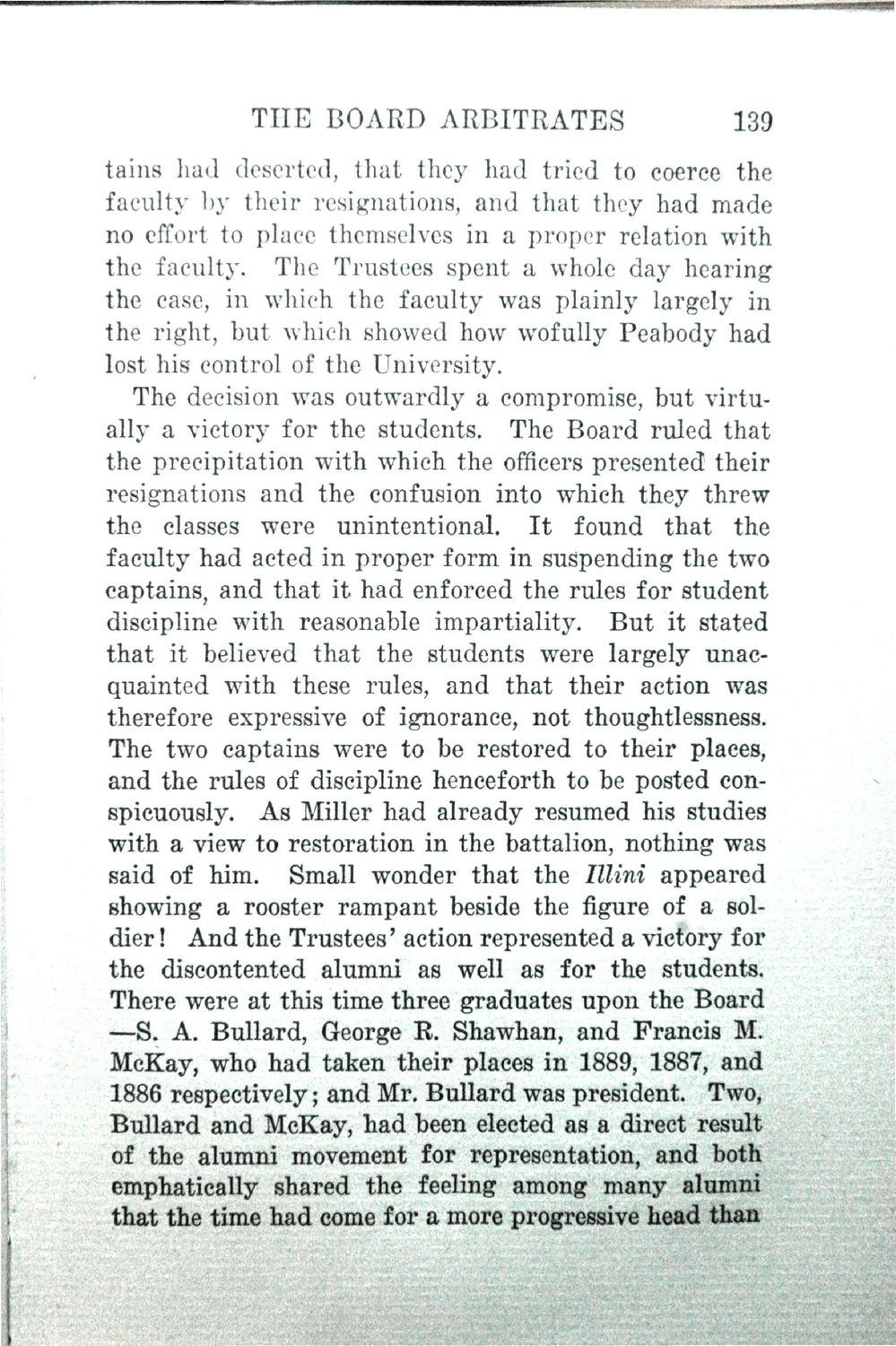| |
| |
Caption: Book - History of the University (Nevins)
This is a reduced-resolution page image for fast online browsing.

EXTRACTED TEXT FROM PAGE:
THE BOARD ARBITRATES 139 tains had deserted, that they had tried to coerce the faculty by their resignations, and that they had made no effort to place themselves in a proper relation with the faculty. The Trustees spent a whole day hearing the case, in which the faculty was plainly largely in the right, but which showed how wofully Peabody had lost his control of the University. The decision was outwardly a compromise, but virtually a victory for the students. The Board ruled that the precipitation with which the officers presented their resignations and the confusion into which they threw the classes were unintentional. It found that the faculty had acted in proper form in suspending the two captains, and that it had enforced the rules for student discipline with reasonable impartiality. But it stated that it believed that the students were largely unacquainted with these rules, and that their action was therefore expressive of ignorance, not thoughtlessness. The two captains were to be restored to their places, and the rules of discipline henceforth to be posted conspicuously. As Miller had already resumed his studies with a view to restoration in the battalion, nothing was said of him. Small wonder that the Illini appeared showing a rooster rampant beside the figure of a soldier ! And the Trustees' action represented a victory for the discontented alumni as well as for the students. There were at this time three graduates upon the Board —S. A. Bullard, George R. Shawhan, and Francis M. McKay, who had taken their places in 1889, 1887, and 1886 respectively; and Mr. Bullard was president. Two, Bullard and McKay, had been elected as a direct result of the alumni movement for representation, and bolpM emphatically shared the feeling among many S that the time had come for a more progressive head than
| |